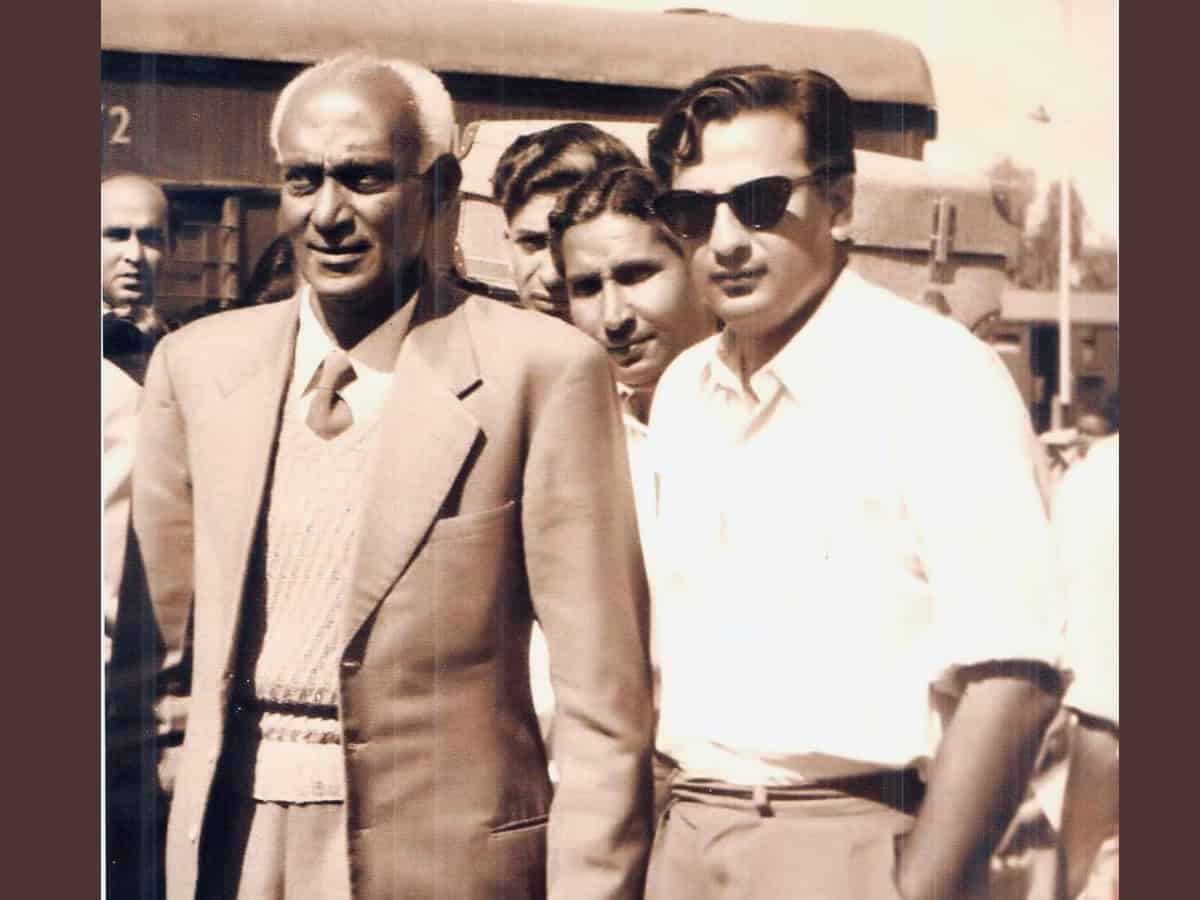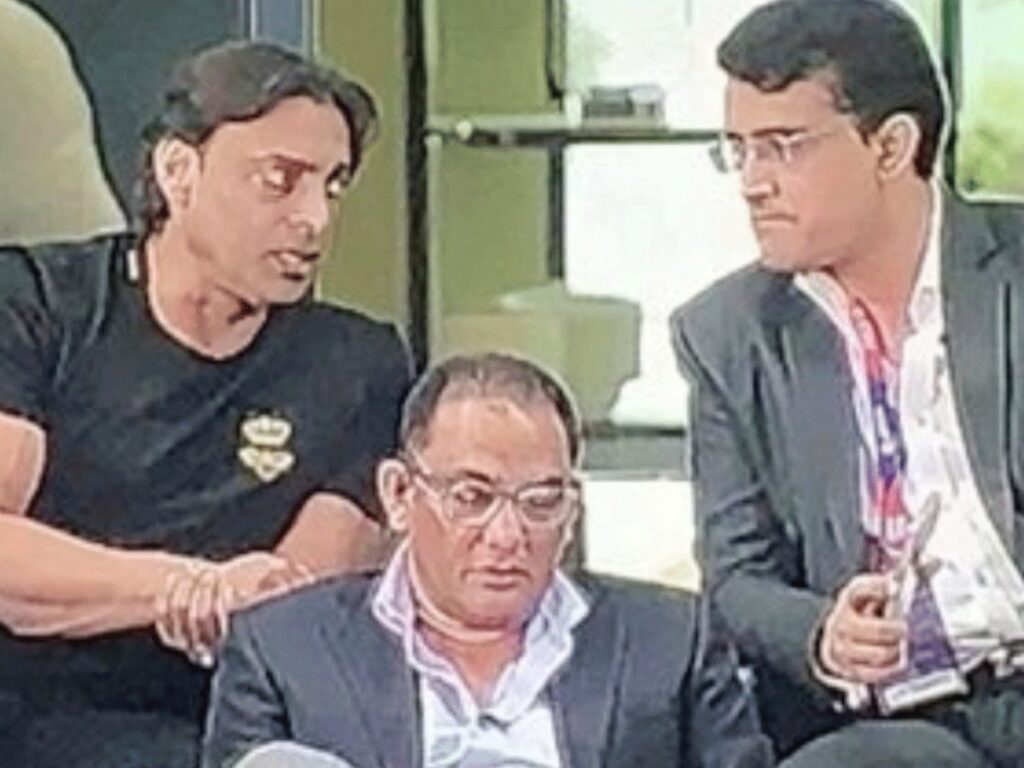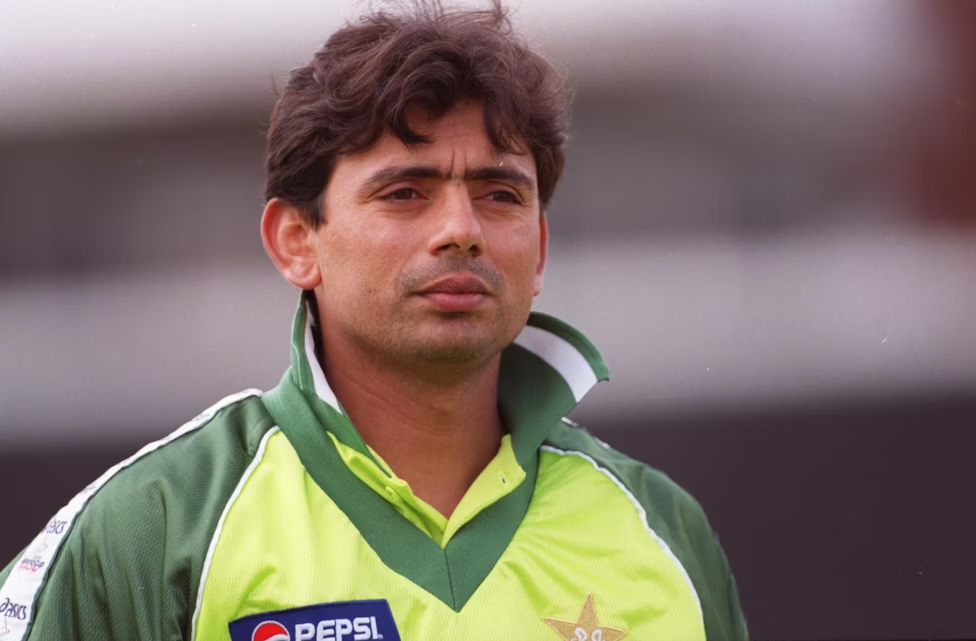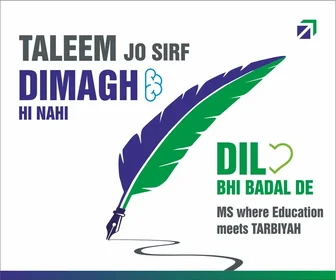
Every cricket contest between India and Pakistan has an added element of competitiveness. Some fans see it as a war between the two countries, and others see it as an opportunity to forge friendships. In reality, it is a game in which players of two sides test their skill and stamina against each other and nothing more. There are also many cases when the players of both sides have developed a mutual appreciation for their rival’s cricketing acumen.
In his autobiography titled A Century Is Not Enough, former Indian captain Sourav Ganguly has written: “During many years of playing against Pakistan, I made some firm friends across the border – Wasim, Waqar, Inzi (Inzamam ul Haq) and Shoaib Akhtar. My first encounter with Shoaib was at the Eden Gardens in Kolkata where he polished off the Indian middle order by dismissing Sachin and Dravid with successive deliveries.”
Later the friendship grew. Ganguly writes: “I found myself intrigued by this rookie fast bowler who was hardly four or five matches old yet compared himself to the two Ws of Pakistan (Wasim and Waqar) who had by then taken more than 700 wickets between themselves. I found this confidence arresting.”

Shopping Mall of fast bowling
Ganguly has further written: “Wasim Akram was another Pakistan great whom I admired. I was very keen on roping him in as the bowling coach of India. I have not seen a better magician on the cricket field. They call him the Sultan of Swing. I beg to differ. To me, he was the shopping mall of fast bowling. You could get whatever you wanted. But maybe due to troubled India-Pak relations, my attempts to take him on board as India’s coach did not succeed.”
Saqlain’s comments
Pakistani off-spinner Saqlain Mushtaq who invented the “doosra” ball, was very friendly with Indian off-spinner Harbhajan Singh. Even though both have retired long ago, they are still in touch. Saqlain Mushtaq has also acknowledged that he has great respect for Sachin Tendulkar’s batting abilities. The same is the case with Anil Kumble and Ashish Nehra who would land up at Saqlain’s residence in London and the two would spend hours chatting with each other.
According to Pakistan all-rounder Shahid Afridi after matches, the Indian and Pakistani players would often meet up in their rooms. “Zaheer Khan, Yuvraj, Harbhajan would drop in and we used to have great fun telling stories and exchanging jokes. Then we used to have dinner together. The aggression that people saw was only on the ground but not when away from it.”

Another example
Another instance of friendship was seen in 1947 when the Indian team was about to be selected for the first-ever tour of Australia (to begin in 1948). The selection camp was to begin at Pune on August 15, 1947. When this plan was made, the BCCI had no idea that India would become Independent that very day.
One of the players who had been called for selection was Fazal Mahmood who later became one of Pakistan’s legendary all-rounders.
So at that time, even as lakhs of people were migrating from one side of the country to another, Fazal Mahmood was swimming against the tide. He was desperately trying to reach Pune from Lahore when lakhs of Muslims were headed in the other direction.
But for obvious reasons, the selection trials could not be held and he returned to Lahore crestfallen. But making any journey at that time of communal conflict was fraught with extreme risks. So the veteran C.K. Nayudu, then in his fifties, decided to accompany Fazal and ensure that he reached his destination safely.
Rioters wanted to kill Fazal
At one point of the train journey, several hoodlums tried to drag out Fazal. But when the tall and sturdy Nayudu, armed with a cricket bat, threatened to break their heads and bones, they changed their minds. Nayudu was a highly respected figure and they did not want to antagonise him. Nayudu’s action saved Fazal’s life that day. He has mentioned this incident in his autobiography.
Clearly players who compete against each other, develop an understanding of the complex nature of human relationships. The intense rivalries on the field do not affect camaraderie between individuals. As many sportsmen say, sports build bridges and in the case of Fazal Mahmood, even saved a player’s life.

